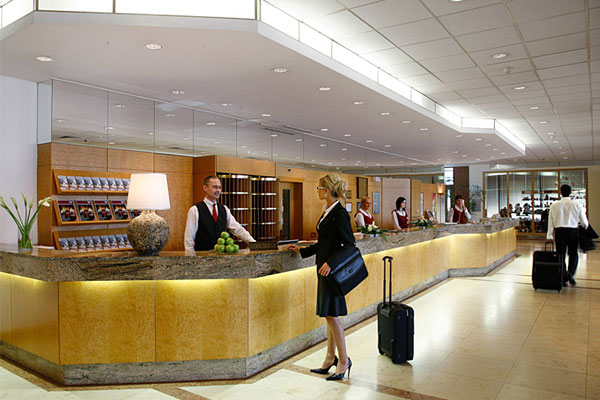Tech-savvy Millennials look for brand reassurance and personalisation of service is key to enhance business traveller experience; User reviews have overtaken hotel star ratings as a key factor in deciding where to stay.
A new survey of more than 1,000 frequent business travellers, commissioned by global hotel solutions provider HRS, in partnership with GTMC, has dispelled the myth that Millennials are most likely to book off policy as the tech savvy generation opt for sharing economy accommodation.
The results highlighted that there has been an industry-wide misconception around this generation of young business travellers and how they book business travel accommodation. In fact, it was revealed that this age group has a very traditional attitude when it comes to business travel, similar to their older counterparts. Nearly three-quarters of 18-29 year olds said that they prefer to stay in a chain hotel whilst almost a quarter said they would opt for an independent hotel. Tellingly only four per cent said they would rather stay in accommodation booked though home sharing sites.
Interestingly, these figures are only marginally different when compared to the total results of corporate travel respondents, with three-quarters saying they prefer to stay in chain hotels, 21 per cent independents and only two per cent for home sharing accommodation.
The research also showed that when it came to deciding where to stay, user reviews had overtaken hotel star ratings. The findings also showed that 18-30 year olds expect the company to receive reward points whilst older generations expect to personally receive loyalty points. This could be because the younger generation value reviews more, so will book a hotel based on this rather than loyalty points.
Jon West, Managing Director of HRS in the UK and Ireland, commented: “This research shows that brand reassurance is just as important to Millennials as it has been to previous generations of business travellers. Whilst such a high number are opting for chain hotels over independents, there is definitely a growing market for this category of hotels, especially as user reviews become ever more crucial in the decision-making process.
“We are seeing travel programmes becoming more varied with a good balance of chain and independent hotels. Since we added 70,000 hotels to the main GDS, independent hotels are now the largest brand being represented and with more people looking at user reviews than just star ratings, this is giving business travellers additional confidence to start considering moving away from a chain – but it will be a gradual process. Ultimately, bookers have more choice than ever before, which can really help avoid brand fatigue as business travellers will simply be able to select a property that best meets their needs for their trip.”
The research also revealed that more businesses had incorporated a hotel travel policy (73 per cent) over any other booking policy. Flight tickets followed closely with 71 per cent, while car rental and train tickets were 56 per cent. Business travel correspondents cited that finding cheaper options (59 per cent) and more desirable options (45 per cent) as being the two top reasons for booking off policy.
Interestingly, the research showed that 30-44 year olds are the most frugal age bracket, with two thirds citing that finding a cheaper option was the biggest factor for going off policy. However, for 18 – 29 year olds finding a more desirable option was driving their motivation to stray.
When it came to deciding where to stay, location (71 per cent), price (55 per cent) and ease of booking (53 per cent) were the top three most important factors when booking.
The range of hotel facilities available to business travellers was also key to improving their overall experience. Complimentary Wi-Fi topped travellers’ priorities, with 96 per cent citing that they considered this to be a basic requirement and expected to be included as part of the rate. Sufficient power sockets (95 per cent), breakfast (94 per cent) and a desk or work area (89 per cent) were all considered fundamental facilities.
For hotels looking to enhance the business traveller experience, the majority answered that fast tracking and personalisation of service was key. The examples given included having room keys waiting for them at reception to eliminate the need to check in, staff having the customer’s profile in advance so they can be greeted by name and room music set up on arrival from a guest’s Spotify profile.
“It was interesting to see that when it came to settling the bill, it was a fairly even split with 50 per cent of business travellers using their own cash and claiming back on expenses while 45 per cent used a company credit card,” Jon explained. “Considering that fast tracking is clearly desirable for many business travellers, businesses could easily manage payment and expense reporting in a much more effective way by implementing a virtual credit card solution.
“This would not only take away the stress and hassle from employees having to settle payments with the hotel and completing expense reports on return; but it would also give businesses complete control over traveller spend. Furthermore, Virtual Credit Cards can be integrated with booking systems that will automatically reconcile all costs and data into one statement to produce a single VAT invoice, replacing the manually cumbersome billback procedure.”
Theodore is the Co-Founder and Managing Editor of TravelDailyNews Media Network; his responsibilities include business development and planning for TravelDailyNews long-term opportunities.





























































































































































































































